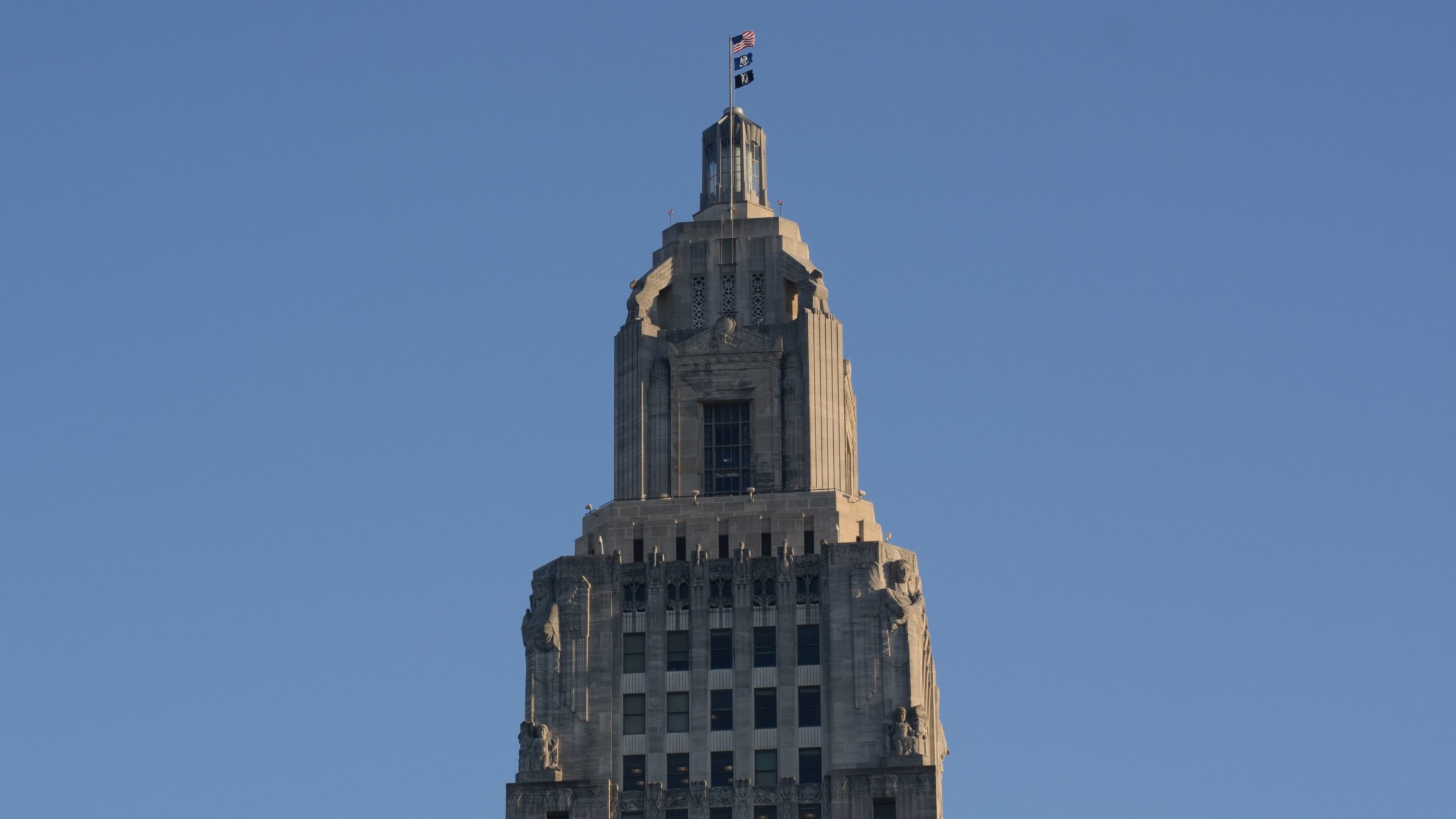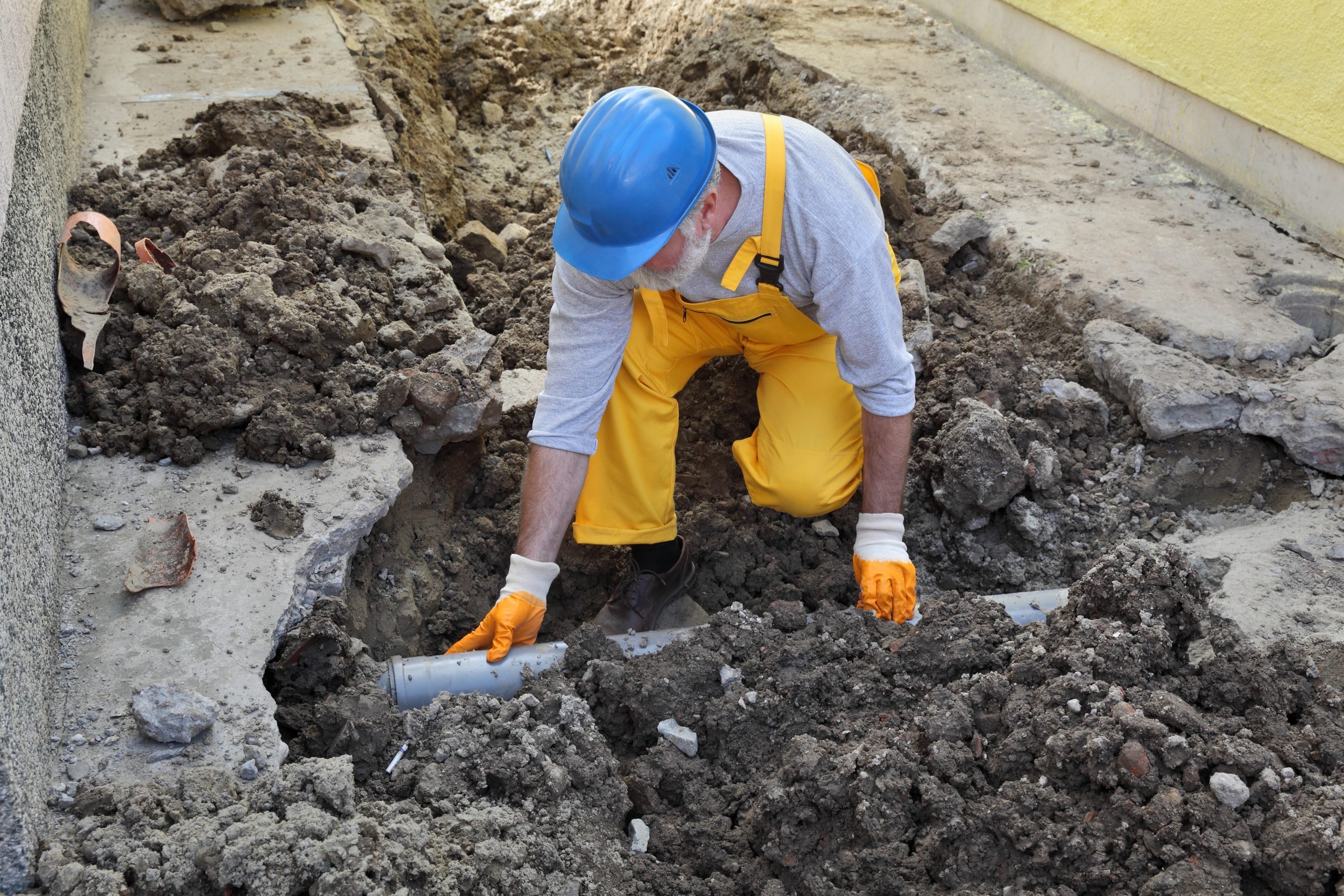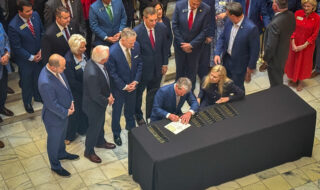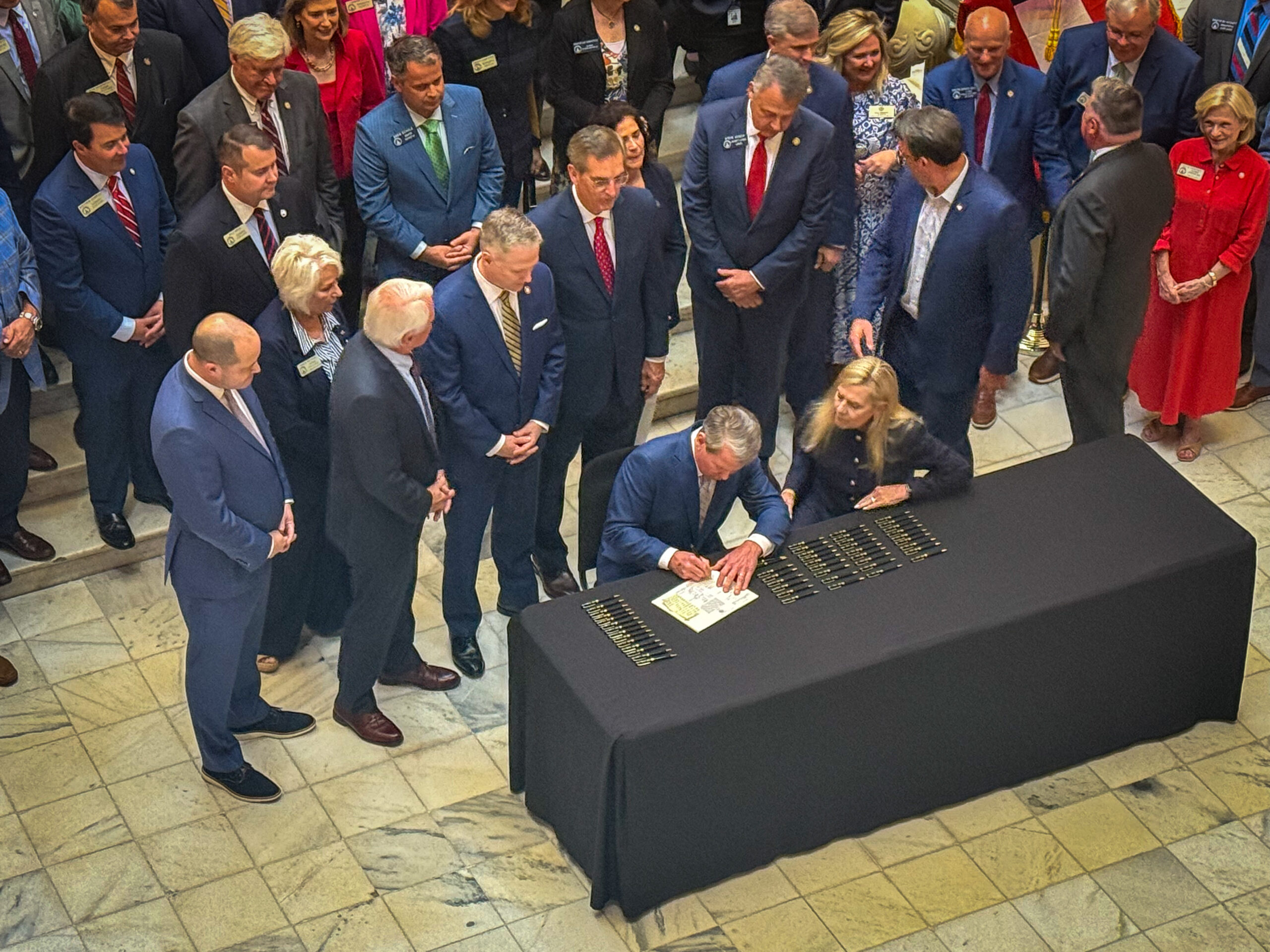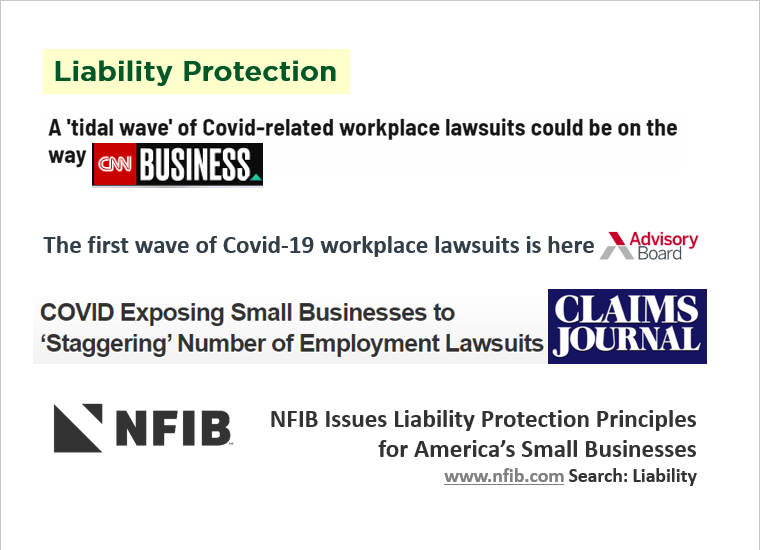January 10, 2021 Last Edit: March 4, 2025
NFIB Montana Testifies in Favor of Liability Protection Bill
Gov. Greg Gianforte asked for it, NFIB members voted for it, and now the Montana State Legislature is looking to approve it: liability protection against unfair COVID-19 lawsuits.
As reported by the Montana Free Press, “This is an extremely important bill that’s to keep these businesses alive,” said NFIB Montana State Director Ronda Wiggers in her legislative testimony for passage of Senate Bill 65. “They cannot afford even the $2,500 or $3,000 that it would cost them to go talk to their attorney for a frivolous lawsuit. Yes, most of [the lawsuits], maybe most of them would get dismissed, but that initial attorney fee is more than these businesses have left right now.”
When asked on their 2021 Montana State Member Ballot “should businesses be protected from frivolous and unmerited COVID-related lawsuits, 97% of NFIB members said yes.
Sixteen states have already passed some version of liability protection for businesses, including Montana’s neighbors, Idaho, Nevada, Utah, and Wyoming. COVID-19 can be contracted anywhere, but enterprising lawyers know businesses might have some money to make an unfair and frivolous lawsuit go away rather than fight it.
Many state policymakers had expected Congress to come up with a uniform, national standard. Not wanting to wait on Congress, Utah was the first state to give all businesses needed protection when Gov. Gary Herbert signed Senate Bill 3007 into law May 4. The law made an exception in cases of “willful misconduct; reckless infliction of harm; or intentional infliction of harm.” Some states just offer protection to their health-care industries but not to other businesses.
In his first news conference, Governor Gianforte made liability protection a top priority of his. According to a news release issued by his office, “Governor Gianforte provided the path to rescinding the statewide mask mandate, including two conditions: After we have increased vaccine distribution and after I have legislation on my desk that protects businesses, schools, places of worship, and nonprofit organizations that follow guidelines from lawsuits, then we will rescind the current statewide mask mandate.”
Great Falls State Sen. Steve Fitzpatrick has authored SB 65 as the vehicle for achieving what the governor and NFIB members want. Section 3 of the bill quite clearly states, “A person who possesses or is in control of a premises, including a tenant, lessee, or occupant of a premises, who directly or indirectly invites or permits an individual onto a premises, shall not be liable for civil damages for injuries sustained from the individual’s exposure to covid-19, whether the exposure occurs on the premises or during an activity managed by the person who possesses or is in control of a premises, unless one or both of the following apply to the person who possesses or is in control of the premises: (1) the person who possesses or is in control of the premises exposes the individual to covid-19 10 through an act of gross negligence or willful and wanton misconduct; or (2) the person who possesses or is in control of the premises intentionally exposes the individual to covid-19.”
Senate Bill 65 received its first hearing on January 8 in the Senate Business, Labor, and Economic Affairs Committee, which Senator Fitzpatrick is chairman of.
Background Bullets
- “Just the mere threat of litigation may cause many businesses to remain closed or delay reopening because few businesses can afford the costs of defending a lawsuit following weeks of business disruption amid the sudden economic recession. Plaintiffs’ lawyers across the country are already recruiting individuals to sue businesses by pouring millions of dollars into advertising.”– Attorneys Michael Shalhoub and Steven S. Vahidi, Claims Journal, Sept. 8, 2020
- “The reality is that defending a discrimination or other employment lawsuit is expensive. Defending a case through discovery and a ruling on a motion for summary judgment can cost an employer between $75,000 and $125,000. If an employer loses summary judgment (which, much more often than not, is the case), the employer can expect to spend a total of $175,000 to $250,000 to take a case to a jury verdict at trial … Moreover, employers cannot avoid this risk simply by settling every claim that is filed, lest the company risk the perception of being an easy mark by every ex-employee.”– Employment law attorney Jon Hyman, Workforce.com, May 14, 2013
NFIB is a member-driven organization advocating on behalf of small and independent businesses nationwide.
Related Articles




